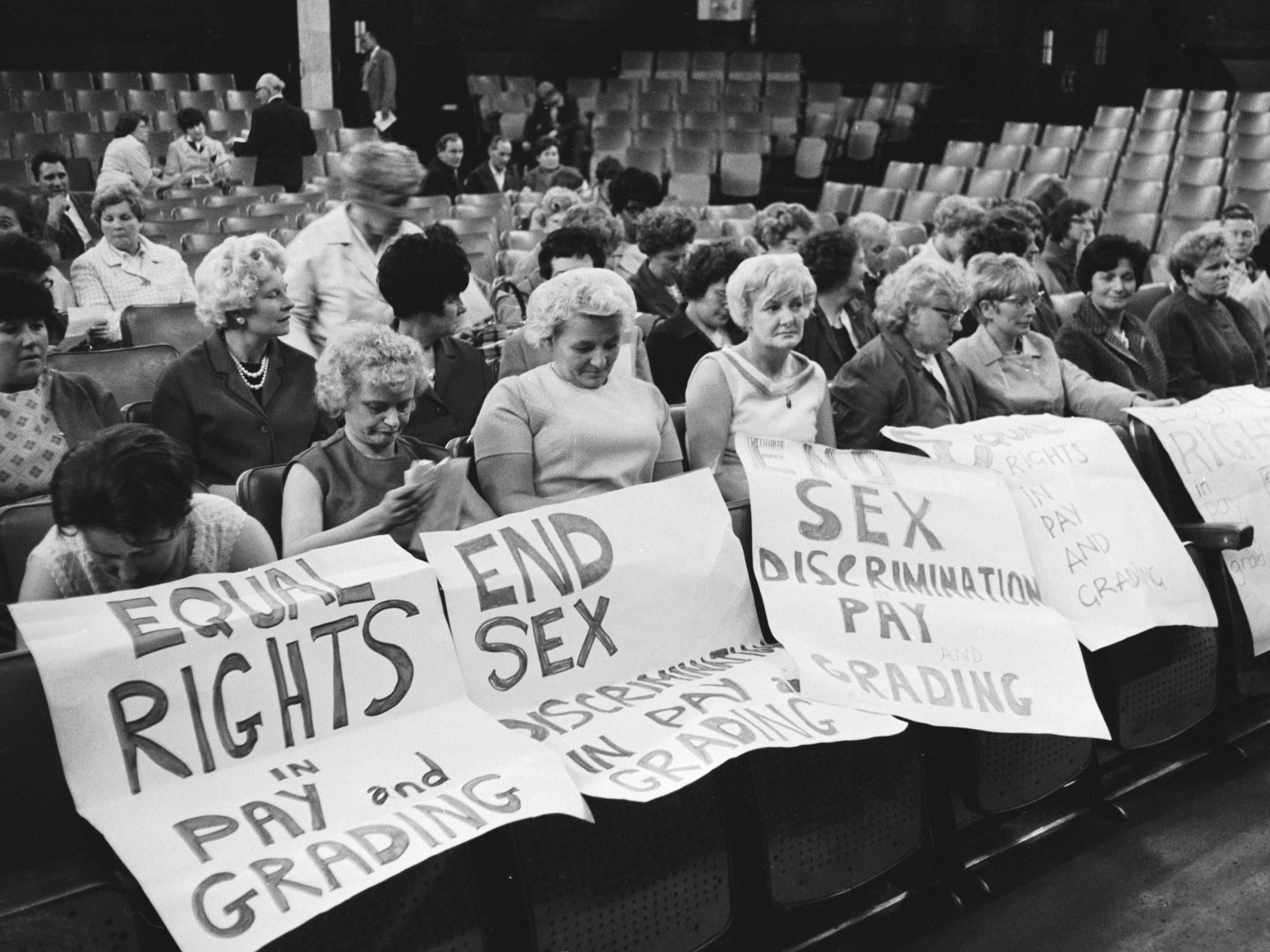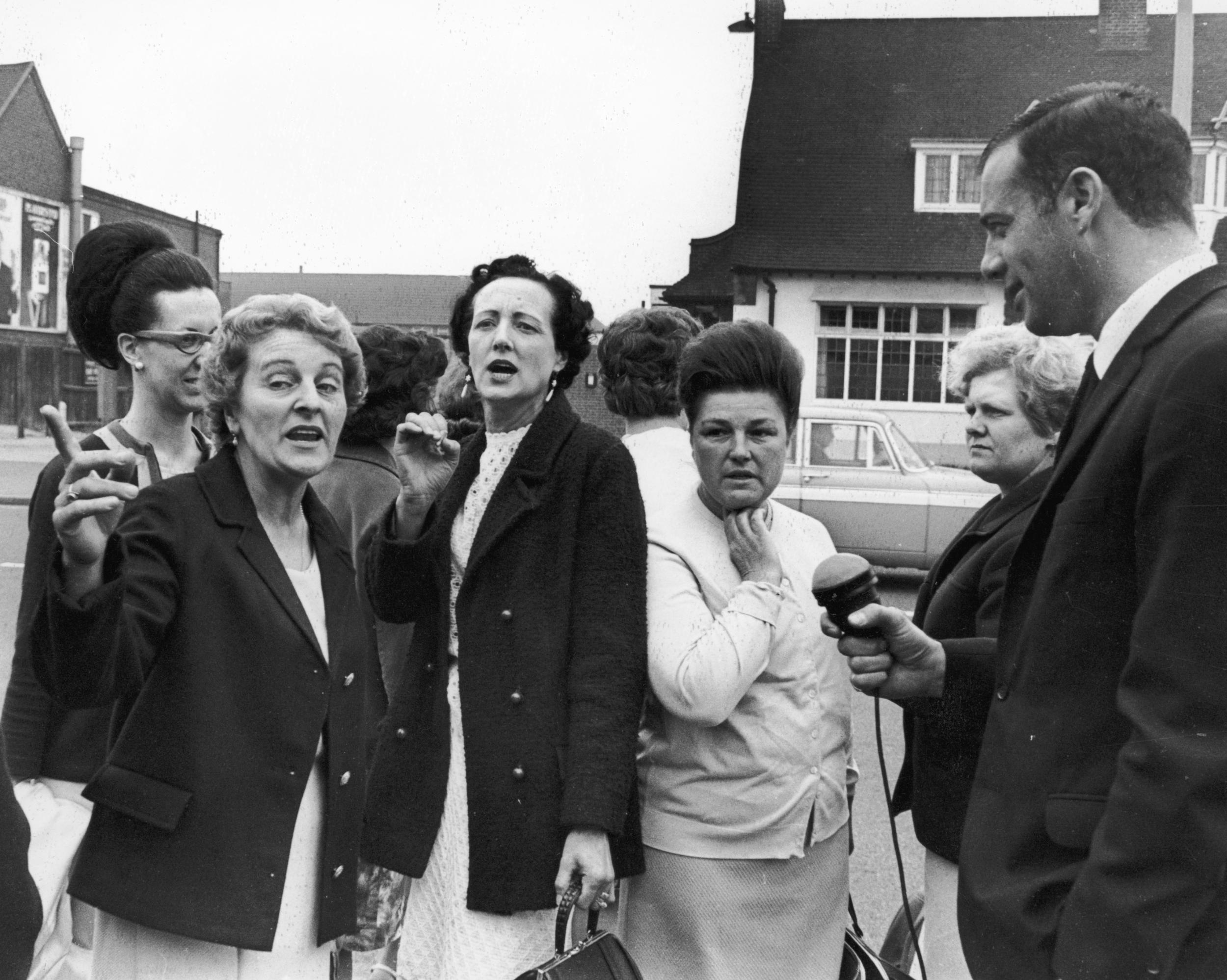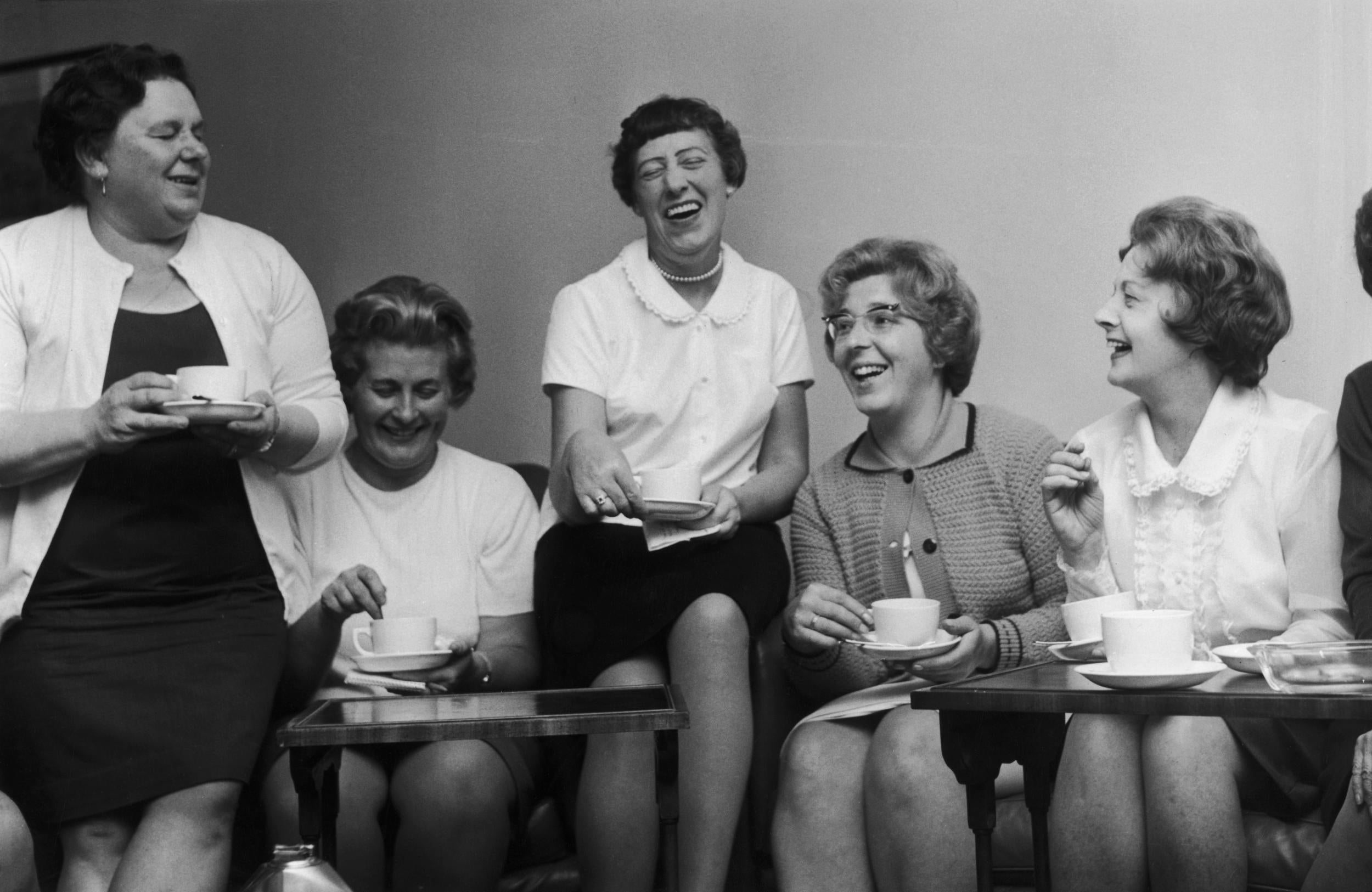How a women’s strike at a factory in Dagenham led to the Equal Pay Act
Story of women sewing machinists’ strike at a Ford factory was dramatised in the 2010 film ‘Made in Dagenham’

Your support helps us to tell the story
From reproductive rights to climate change to Big Tech, The Independent is on the ground when the story is developing. Whether it's investigating the financials of Elon Musk's pro-Trump PAC or producing our latest documentary, 'The A Word', which shines a light on the American women fighting for reproductive rights, we know how important it is to parse out the facts from the messaging.
At such a critical moment in US history, we need reporters on the ground. Your donation allows us to keep sending journalists to speak to both sides of the story.
The Independent is trusted by Americans across the entire political spectrum. And unlike many other quality news outlets, we choose not to lock Americans out of our reporting and analysis with paywalls. We believe quality journalism should be available to everyone, paid for by those who can afford it.
Your support makes all the difference.On 29 May 1970, two years after going on strike, 187 women working at a factory in East London witnessed their hard work pay off when the Equal Pay Act received royal assent.
Coming into force five years later, the Act sought to “prevent discrimination, as regards terms and conditions of employment, between men and women”. This meant that it was required for men and women “in the same employment” to be treated equally, in terms of their pay and conditions of work.
The establishment of the Equal Pay Act half a century ago was a landmark moment in the fight for gender equality.
However, it may have taken even longer to pass had the strike of women sewing machinists at a Ford factory in Dagenham not taken place, a short demonstration that proved a catalyst in the fight for equal pay.
Underestimating skilled work
The strike of women sewing machinists at Ford Motor Company Limited’s Dagenham plant occurred in June 1968 following a dispute over the way in which their positions at the factory were classed.
As part of a regrading exercise, it was determined that the sewing machinists would be classed as Category B, the category given to less-skilled production jobs, as opposed to Category C, for production jobs worthy of a higher skill.
They were also informed that they would be paid 15 per cent less than the typical salary received by men whose jobs were placed in Category B.
The majority of the machinists rightfully felt it was unfair for their hard work to be regarded in this manner.
Their job was to produce thousands of seat covers for Ford vehicles, a task that no one else working in the factory knew how to undertake.

They therefore realised that if they were to walk out, their absence would have a huge impact on the running of the factory. And that it did.
In total, 187 women took part in the demonstration. While this number may not seem that large, the decision to strike resulted in production at the factory stopping entirely.
“The strike brought the factory to its knees – after all, you can’t sell cars without seat covers, and no one else knew how to make them,” the Trades Union Congress stated.
While the strike succeeded in disrupting operations at Ford factories – with machinists at Ford’s Halewood Body and Assembly plant following in the footsteps of their Dagenham counterparts – it also caused some tension among the participants’ families.
Many of the women’s husbands also worked at the Dagenham factory. Not only did some of them disapprove of the strike, but it also put their jobs and the livelihoods of their families at risk.
Nonetheless, three weeks after the strike began, notable progress was made.
Tea with Barbara Castle
Barbara Castle, the secretary of state for employment and productivity in Harold Wilson’s Labour government, was called in to intervene with the strike.
The machinists were invited to have tea with Mrs Castle in her office so they could discuss their cause.
Their tea later turned into a more casual round of drinks, Violet Dawson, one of strikers, recalled in 2003. “When the press had gone, Mrs Castle opened her drinks cabinet and we all had a drink,” she said.

After Mrs Castle was brought in to negotiate with the machinists, they were presented with the offer of a salary increase to 92 per cent of the rate typically awarded to men whose jobs are classed as Category B, like their own.
While this did not mean they had yet achieved equal pay, they accepted the offer, marking significant progress after just a few weeks of striking.
It wasn’t until 1984 that sewing machinists at the factory were regraded as being in the more skilled Category C, meaning that it took 16 years for them to be placed in the category of skill that they deserved.
And yet, their decision to strike in the late 1960s triggered the passing of the Equal Pay Act in 1970 and inspired those fighting for gender equality to this day.
The introduction of the Equal Pay Act meant that for the first time, it became law for men and women to be paid the same salary for equal work.
This included work considered ”the same or broadly similar”, regardless of the official job title.
Working women are indispensable
In addition to playing an important role making sure the Equal Pay Act was passed, the machinists’ strike also inspired the creation of the National Joint Action Campaign Committee for Women’s Equal Rights, which was founded by women trade unionists.
In May 1969, almost a year after the strike, the organisation organised an Equal Pay demonstration in Trafalgar Square.
During a second reading of the Equal Pay Act, which took place in February 1970, former Halifax MP Dr Shirley Summerskill praised the “significant” role the women machinists played in the fight for equal pay.
“We must acknowledge in this debate a group of women who played a very significant part in the history of the struggle for equal pay,” Dr Summerskill said.
“I refer to that small group of women machinists at Fords who went on strike for their beliefs and their rights. I do not like strikes any more than anyone else, but those women had to take really forceful action to achieve this principle.”
Comparing the machinists to “the early pioneers for women’s suffrage”, Dr Summerskill said they “faced abuse, misrepresentation and ridicule”, but made “politicians and public alike” realise that “working women are indispensable to the economy”.
Four decades after the Equal Pay Act received royal assent, it was replaced by the Equality Act 2010, which consolidated several acts including the Sex Discrimination Act, the Race Relations Act and the Disability Discrimination Act.
That same year, the film Made in Dagenham, which depicted the 1968 factory strike, was released.
The widely-praised film was later adapted into a stage production at London’s Adelphi Theatre, which ran from October 2014 until April 2015.
Despite the progress that has been made since the passing of the Equal Pay Act in 1970, there is still plenty of progress to be made.
In December 2019, a study published by the World Economic Forum concluded that it could take more than two centuries before women obtain equal pay.
Meanwhile, research conducted by the Fawcett Society earlier this year discovered that four in 10 people are not aware that women have a right to equal pay.
Join our commenting forum
Join thought-provoking conversations, follow other Independent readers and see their replies
Comments